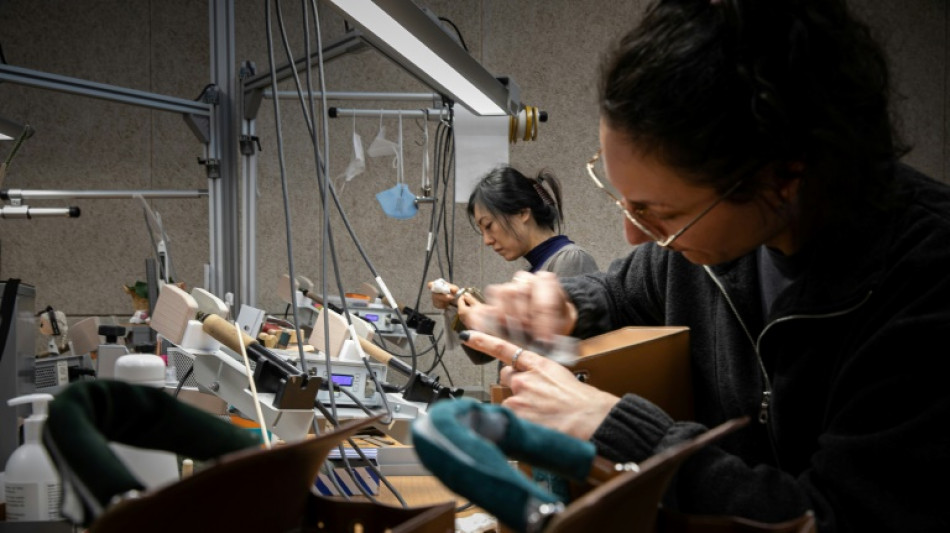
-
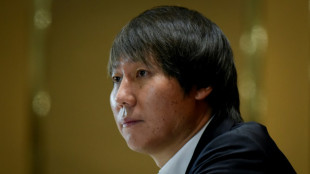 Ex-Premier League star Li Tie loses appeal in 20-year bribery sentence
Ex-Premier League star Li Tie loses appeal in 20-year bribery sentence
-
Belgium's green light for red light workers
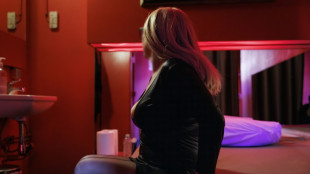
-
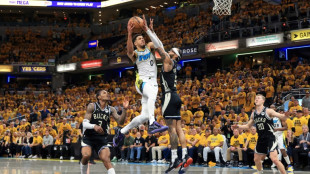 Haliburton leads comeback as Pacers advance, Celtics clinch
Haliburton leads comeback as Pacers advance, Celtics clinch
-
Rahm out to break 2025 win drought ahead of US PGA Championship

-
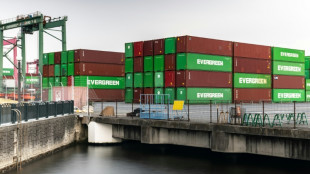 Japan tariff envoy departs for round two of US talks
Japan tariff envoy departs for round two of US talks
-
Djurgarden eyeing Chelsea upset in historic Conference League semi-final

-
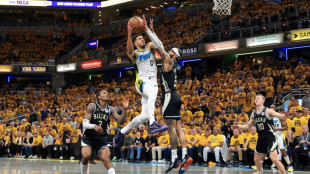 Haliburton leads comeback as Pacers advance, Pistons stay alive
Haliburton leads comeback as Pacers advance, Pistons stay alive
-
Bunker-cafe on Korean border paints image of peace
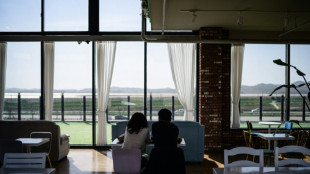
-
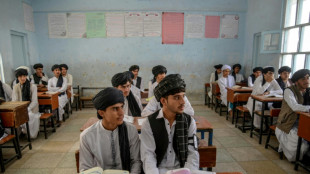 Tunics & turbans: Afghan students don Taliban-imposed uniforms
Tunics & turbans: Afghan students don Taliban-imposed uniforms
-
Asian markets struggle as trade war hits China factory activity
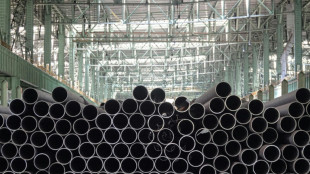
-
 Norwegian success story: Bodo/Glimt's historic run to a European semi-final
Norwegian success story: Bodo/Glimt's historic run to a European semi-final
-
Spurs attempt to grasp Europa League lifeline to save dismal season

-
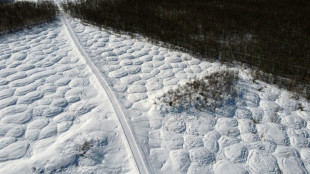 Thawing permafrost dots Siberia with rash of mounds
Thawing permafrost dots Siberia with rash of mounds
-
S. Korea prosecutors raid ex-president's house over shaman probe: Yonhap
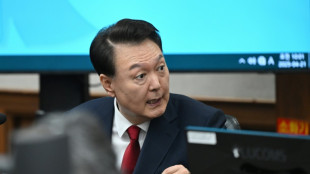
-
 Filipino cardinal, the 'Asian Francis', is papal contender
Filipino cardinal, the 'Asian Francis', is papal contender
-
Samsung Electronics posts 22% jump in Q1 net profit
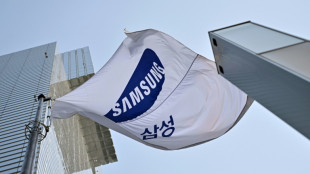
-
 Pietro Parolin, career diplomat leading race to be pope
Pietro Parolin, career diplomat leading race to be pope
-
Nuclear submarine deal lurks below surface of Australian election
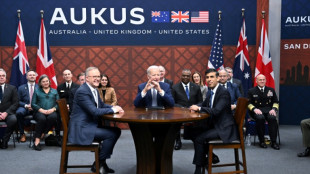
-
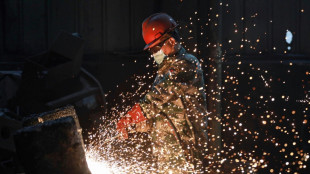 China's manufacturing shrinks in April as trade war bites
China's manufacturing shrinks in April as trade war bites
-
Financial markets may be the last guardrail on Trump
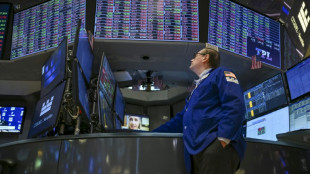
-
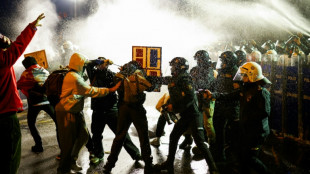 Swedish journalist's trial opens in Turkey
Swedish journalist's trial opens in Turkey
-
Kiss says 'honour of a lifetime' to coach Wallabies at home World Cup

-
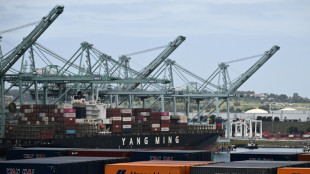 US growth figure expected to make for tough reading for Trump
US growth figure expected to make for tough reading for Trump
-
Opposition leader confirmed winner of Trinidad elections
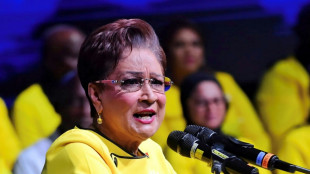
-
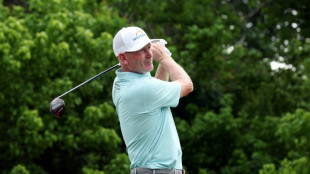 Snedeker, Ogilvy to skipper Presidents Cup teams: PGA Tour
Snedeker, Ogilvy to skipper Presidents Cup teams: PGA Tour
-
Win or bust in Europa League for Amorim's Man Utd

-
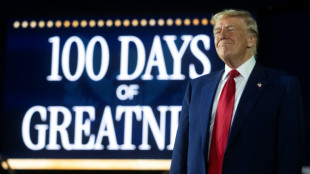 Trump celebrates 100 days in office with campaign-style rally
Trump celebrates 100 days in office with campaign-style rally
-
Top Cuban dissidents detained after court revokes parole

-
 Arteta urges Arsenal to deliver 'special' fightback against PSG
Arteta urges Arsenal to deliver 'special' fightback against PSG
-
Trump fires Kamala Harris's husband from Holocaust board
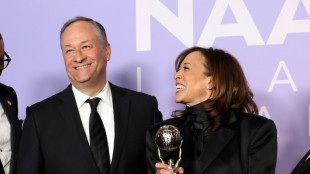
-
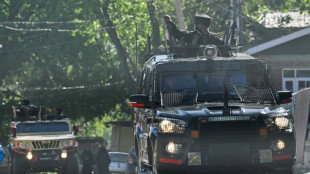 Pakistan says India planning strike as tensions soar over Kashmir attack
Pakistan says India planning strike as tensions soar over Kashmir attack
-
Weinstein sex attack accuser tells court he 'humiliated' her
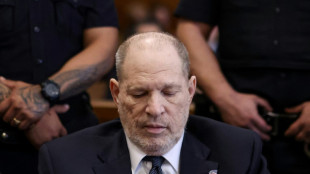
-
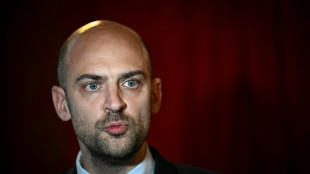 France accuses Russian military intelligence over cyberattacks
France accuses Russian military intelligence over cyberattacks
-
Global stocks mostly rise as Trump grants auto tariff relief
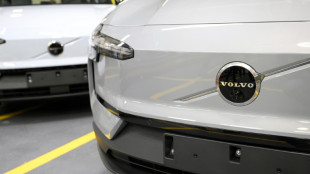
-
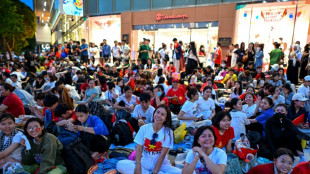 Grand Vietnam parade 50 years after the fall of Saigon
Grand Vietnam parade 50 years after the fall of Saigon
-
Trump fires ex first gentleman Emhoff from Holocaust board
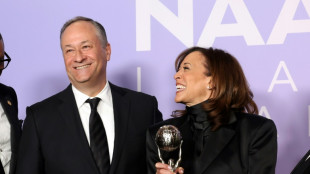
-
 PSG 'not getting carried away' despite holding edge against Arsenal
PSG 'not getting carried away' despite holding edge against Arsenal
-
Cuban dissidents detained after court revokes parole

-
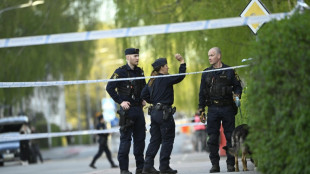 Sweden stunned by new deadly gun attack
Sweden stunned by new deadly gun attack
-
BRICS blast 'resurgence of protectionism' in Trump era
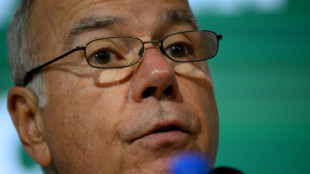
-
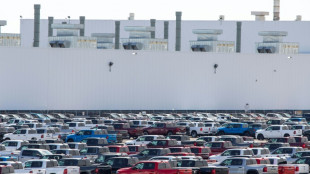 Trump tempers auto tariffs, winning cautious praise from industry
Trump tempers auto tariffs, winning cautious praise from industry
-
'Cruel measure': Dominican crackdown on Haitian hospitals

-
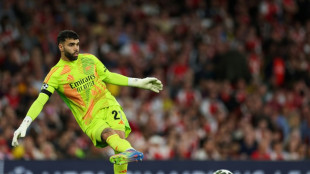 'It's only half-time': Defiant Raya says Arsenal can overturn PSG deficit
'It's only half-time': Defiant Raya says Arsenal can overturn PSG deficit
-
Dembele sinks Arsenal as PSG seize edge in Champions League semi-final

-
 Les Kiss to take over Wallabies coach role from mid-2026
Les Kiss to take over Wallabies coach role from mid-2026
-
Real Madrid's Rudiger, Mendy and Alaba out injured until end of season

-
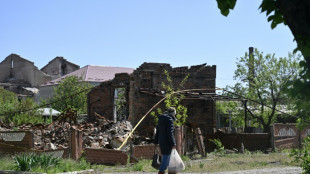 US threatens to quit Russia-Ukraine effort unless 'concrete proposals'
US threatens to quit Russia-Ukraine effort unless 'concrete proposals'
-
Meta releases standalone AI app, competing with ChatGPT
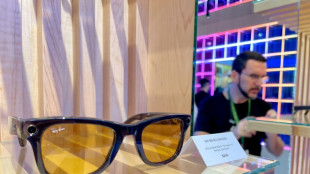
-
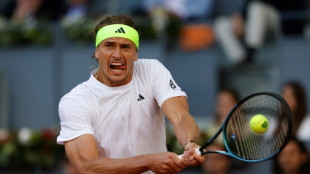 Zverev crashes as Swiatek scrapes into Madrid Open quarter-finals
Zverev crashes as Swiatek scrapes into Madrid Open quarter-finals
-
BRICS members blast rise of 'trade protectionism'
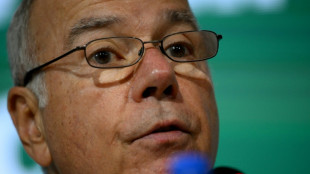

TikTok videos exploit trade war to sell fake luxury goods
TikTok abounds with viral videos accusing prestigious brands of secretly manufacturing luxury goods in China so they can be sold at cut prices.
But while these "revelations" are spurious, behind them lurks a well-oiled machine for selling counterfeit goods that is making the most of the confusion surrounding trade tariffs.
Chinese content creators who portray themselves as workers or subcontractors in the luxury goods business claim that Beijing has lifted confidentiality clauses on local subcontractors as a way to respond to the huge hike in customs duties imposed on China by US President Donald Trump.
They say this Chinese decision, of which AFP has found no trace, authorises them to reveal the hidden underbelly of luxury goods manufacturing in China.
They encourage Western consumers to buy directly from the websites selling these goods, which bear no logos or labels but are said to be of the same quality and design as the expensive originals.
The prices are alluring too, dropping from $38,000 for a luxury bag to $1,400.
Brands targeted -- which include Hermes, Chanel and Louis Vuitton, whose goods are produced in Europe and the United States according to their websites -- declined to respond to AFP questions about the claims made in these viral videos.
But for Jacques Carles, head of the French Luxury and Design Centre, a management consultancy, the notion that luxury brands would manufacture goods in China is simply "absurd".
"It would be suicidal. If there was evidence -- and there isn't -- it would be the end. These brands aren't stupid," he told AFP.
While the TikTokers point to the skill of the Chinese workers, presented as the little hands behind the big luxury names, "these counterfeit workshops absolutely do not respect all the required stages in the manufacturing process", he said.
- 'Creating doubt' -
Carles cited the example of Hermes's Birkin bag, which requires "hundreds of hours of work" to produce.
He said the internet clip makers were, "by creating doubt", actually looking to "open up an opportunity... to shift their stocks" of counterfeit goods.
"It's a viral campaign that's spread on social networks (and) is difficult to counter," he said.
Luxury brands chose to remain silent and "treat the phenomenon with scorn", which was a mistake in his view, he added.
The accusation that luxury goods officially manufactured in Europe were in reality being secretly made in China "does not make any sense", concurred Michel Phan, professor of luxury marketing at emlyon business school in France.
He rejected the argument made on TikTok that this was a Chinese retort to US trade tariffs.
"Hurting European luxury brands will not change anything (for) the US government because they are not related to those brands," he said.
"All the videos online mentioning that luxury brands manufactured their products in China and then put the 'Made in France' label before selling them are nonsense.
"It is illegal to do so and no brand will take the risk to get caught (sic) doing it."
The e-commerce department at China's trade ministry said in a statement: "Any misleading marketing, infringement, or counterfeit activities" by entities posing as subconstractors for established brands "will be promptly referred to law enforcement agencies for investigation and action."
- 'I'm such a sucker' -
Comments on the viral clips, portrayed as coming from internet users rather than the video creators themselves, seem to show that the message resonates.
"I'm so annoyed. I paid top price!" said one in a video comment.
"I'm such a sucker," said another.
Some leave comments asking for the names of "suppliers of luxury goods" in China from whom they can buy the coveted items on the cheap.
Meanwhile, Chinese vendors are also selling counterfeit luxury goods directly on TikTok, with links to their websites. These TikTok live reels garner hundreds of views each.
They show row upon row of shelves full of luxury items, all numbered.
"DHL delivery. Products identical to those in stores. The only difference is the price," says one, using an AI-generated voice in French.
Internet users are invited to scan a QR code or click on a link to complete their purchase via WhatsApp or PayPal.
AFP has found a score of similar live feeds, released simultaneously in English and French, suggesting that the main targets are internet users in Europe and the United States.
China is regularly accused of being the world's top producer of counterfeit goods.
Some estimates suggest 70 to 80 percent of all fakes are manufactured there.
In European Union states and a number of other countries there are hefty penalties for purchasing counterfeits.
In France, that could mean a three-year prison term and a fine of 300,000 euros ($340,600).
Customs authorities may also confiscate counterfeit goods and fine the purchaser the equivalent of the items' true value.
The European Union Intellectual Property Office (EUIPO) says counterfeiting costs European industry 16 billion euros a year, with the clothes, cosmetics and toy sectors being the worst affected.
R.Braegger--VB
